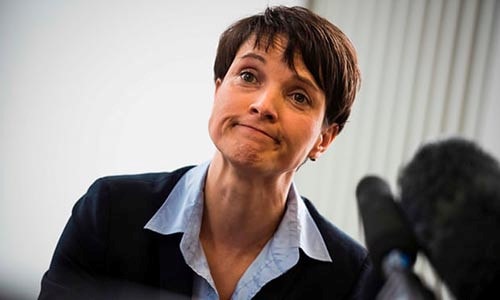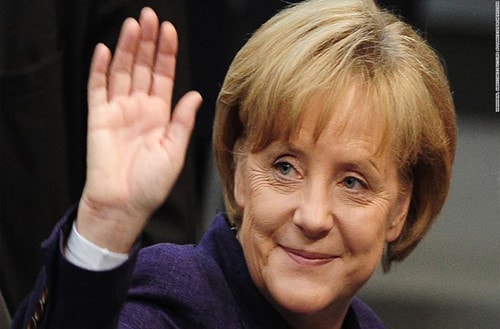How 'dangerous' is the rise of the far-right AfD party?
Founded in 2013, after a breakthrough, the far-right AfD Party is becoming a source of anxiety not only for Germany but also for Europe.
The "spectacular" breakthrough of the far-right AfD party
When the Alternative for Germany (AfD) was founded in April 2013, it was thought to be a “nobody” party with no political voice. However, no one could have expected that the AfD would rise to become the third largest party in the German Parliament four years later.
In the 2013 federal election, the far-right AfD won just 4.7% of the vote. In 2014, the party received 7.1% of the vote and 7 of Germany's 96 seats in the European Parliament elections.
 |
| Chairwoman of the far-right Alternative for Germany (AfD) party Frauke Petry. Photo: Getty Images. |
It can be said that the "earthquake" in Germany began to happen when, in the 2017-2021 Federal Parliament election, AfD, a far-right party with nationalist and even fascist tendencies with anti-Islamic and anti-immigration views, won 13% of the votes - equivalent to 94 out of 631 seats in the National Assembly and rose to become the third largest political force in Germany.
This is the first time since World War II that Germany - a country haunted by the "ghost" of the fascist past - has had 94 MPs representing a far-right populist party in the Federal Parliament. According to analysts, the unexpected victory of the AfD Party marks a "moment of change" in the history of Europe's leading country.
AfD – a potential danger to Germany and Europe
Ever since the AfD won a landslide victory in the parliamentary elections in September 2017, it has been predicted that this far-right party will be a formidable challenge to Angela Merkel's fourth term as German Chancellor.
And indeed, Chancellor Angela Merkel is now facing the biggest political challenge of her 12 years in power, even threatening her position as head of the German government.
On November 19, Germans witnessed an unprecedented event in the country's history when political parties failed to reach an agreement to form a new coalition government to lead the country.
Accordingly, negotiations to form a coalition government between Chancellor Angela Merkel's Christian Democratic Union/Christian Social Union (CDU/CSU), the business-friendly Free Democratic Party (FDP) and the environmentalist Green Party failed miserably when the FDP announced its withdrawal from the negotiations because it could not find "common ground" on many issues.
 |
| German Chancellor Angela Merkel. Photo: CNN. |
Germany has two paths before it: One is that Chancellor Angela Merkel will form a minority government. However, Ms. Merkel may not choose this path. In fact, the minority government model is quite common in other countries but has no precedent for being applied at the federal level in Germany.
Second, a new general election will be held. German President Steinmeier will first announce the dissolution of the Bundestag and call a new general election. However, the political parties in Germany themselves do not want this scenario to happen because they are concerned that the AfD Party will have the opportunity to gain more seats in the German legislature.
According to Kienthuc.net.vn
| RELATED NEWS |
|---|


